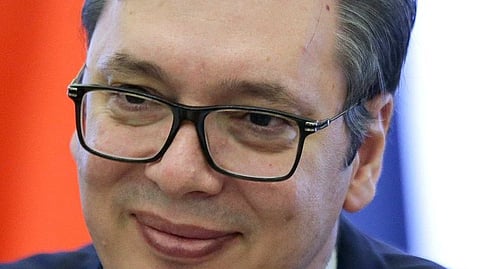

Serbian President Aleksandar Vucic has rejected an ultimatum issued by opposition protesters demanding early parliamentary elections and the removal of pro-government encampments outside the parliament building, warning that tensions in the country may escalate further.
Anti-government protests, which have erupted periodically since November, escalated again on Friday when demonstrators issued a deadline to Vucic, demanding he accept their conditions by 9:00 PM local time or face widespread civil disobedience, including road and bridge blockades across Serbia.
Vucic responded firmly on Friday evening, stating, “The ultimatum has not been accepted. You don’t have to wait until tomorrow at 9:00 PM. Serbia never accepts ultimatums.”
He pledged to uphold public order and warned that the state would respond if provoked: “I hope that they will not force us to do that! The state will intervene if forced to, and June 28 will pass.” He also stated that while police would act with restraint, “hooligans will be brought to justice,” a term he has frequently used to describe the protest movement, which he has claimed is coordinated from abroad.
The current protests in Serbia began following the collapse of a concrete canopy at the Novi Sad railway station, which killed 16 people. What started as outrage over the tragedy quickly evolved into a broader anti-government movement demanding accountability, resignations, and early parliamentary elections—a course of events commonly associated with color revolutions.
The situation has taken on many of the characteristics of a color revolution, typically supported by foreign-funded non-governmental organizations (NGOs). These movements often rely on external financial and logistical backing to sustain pressure in a country’s capital and to maintain prolonged protest activity.
A common demand among these movements, as seen in past examples, is the push for early elections. Analysts have drawn comparisons between the situation in Serbia and the events of Ukraine’s 2014 Maidan uprising, where then-President Viktor Yanukovych agreed to hold early elections, only to be removed from office the following day.